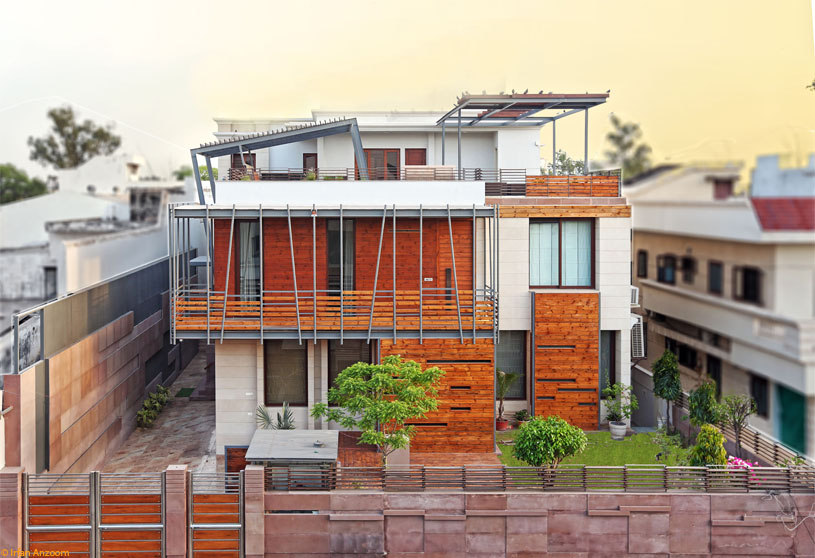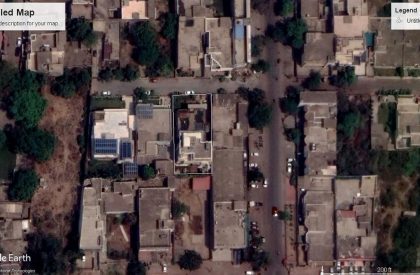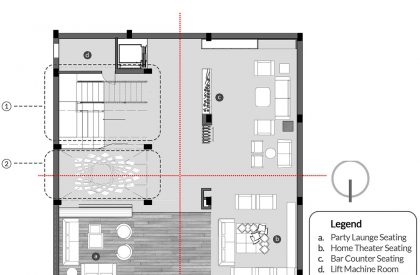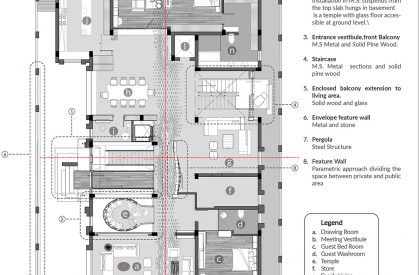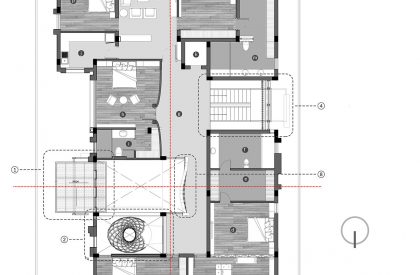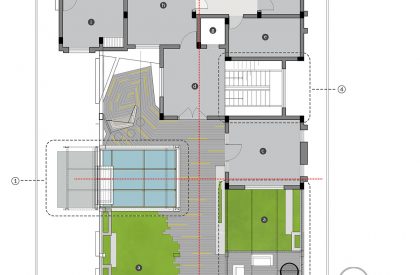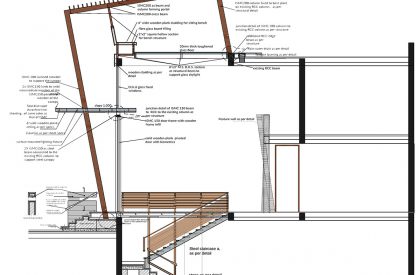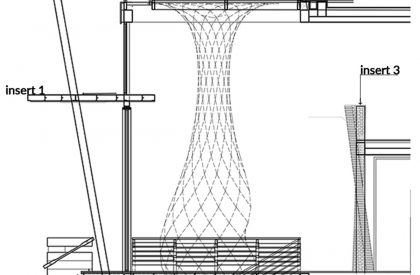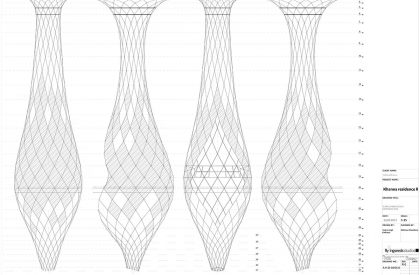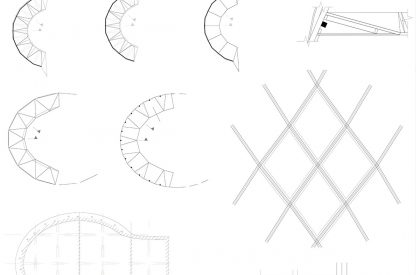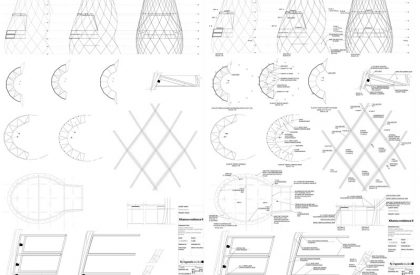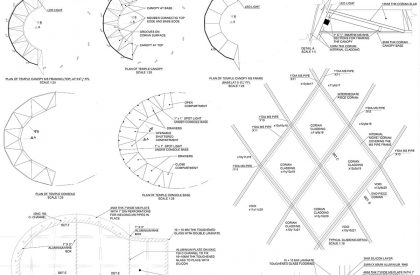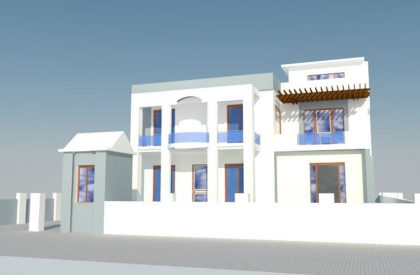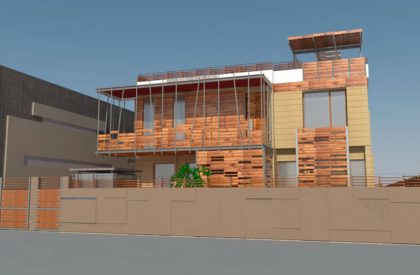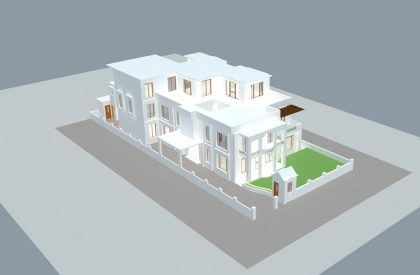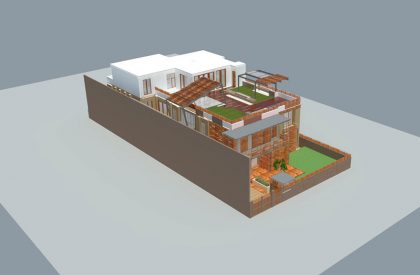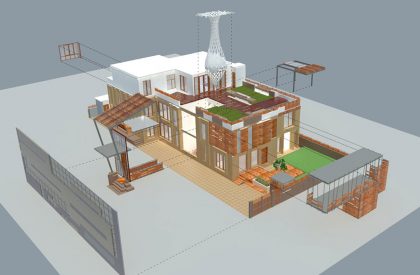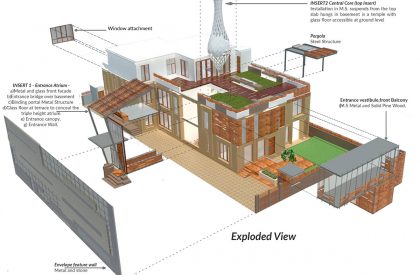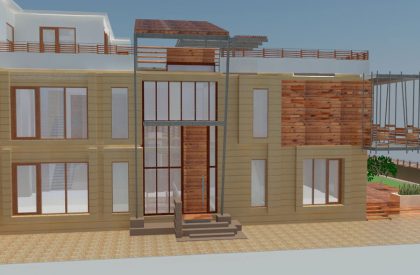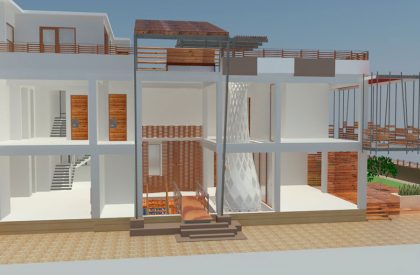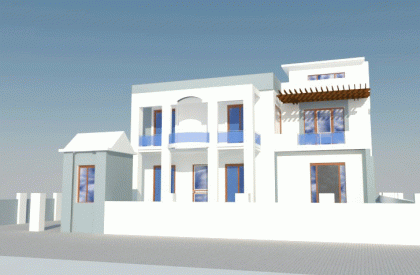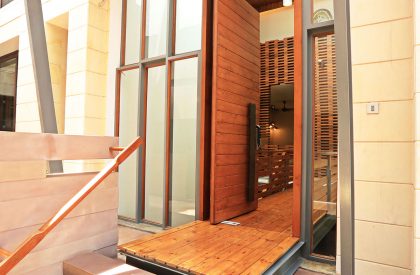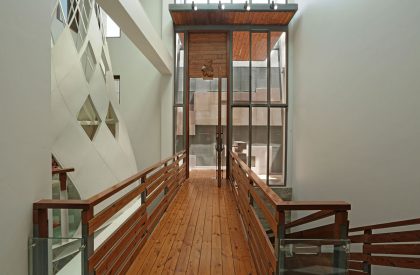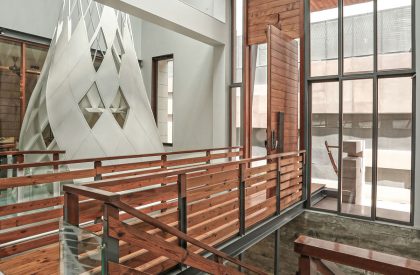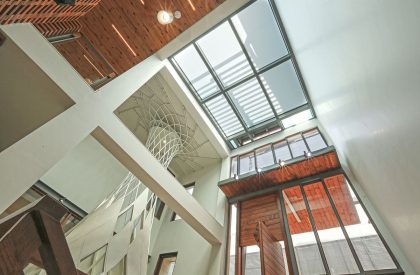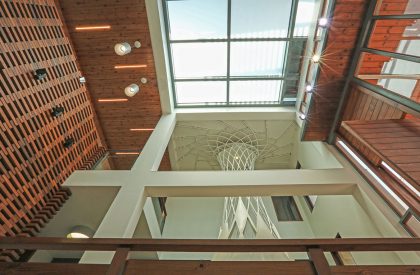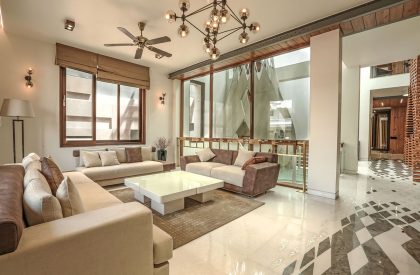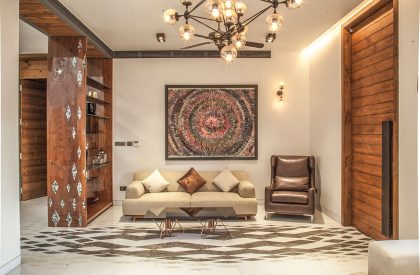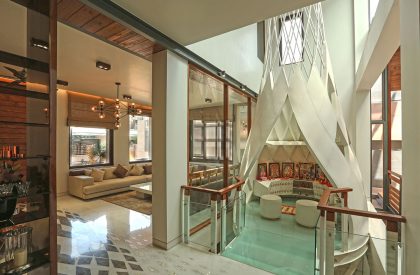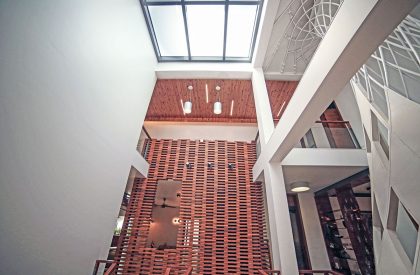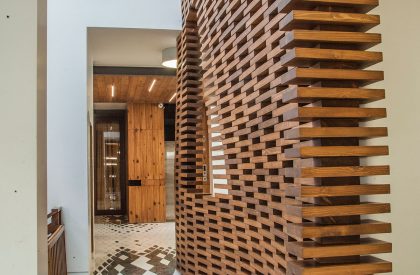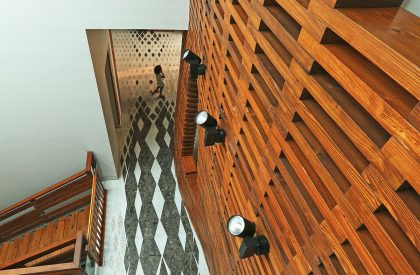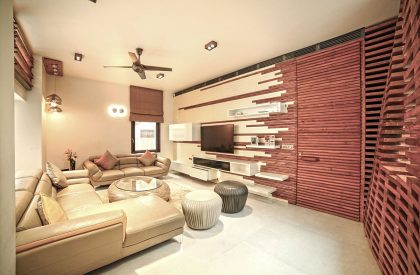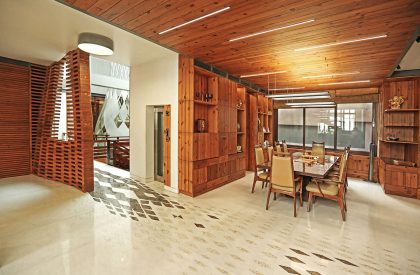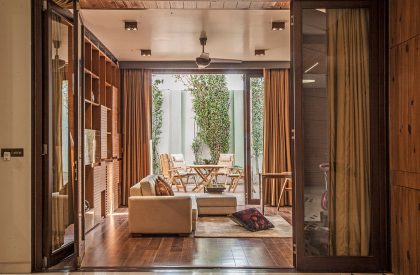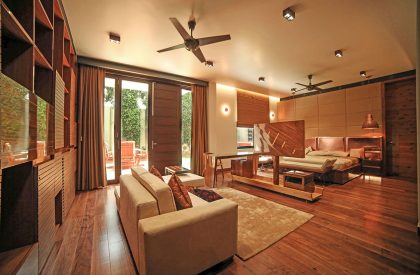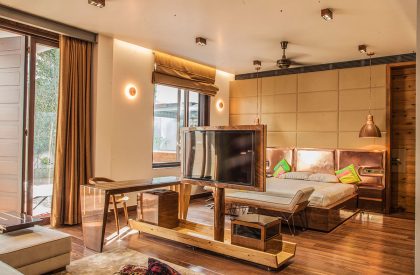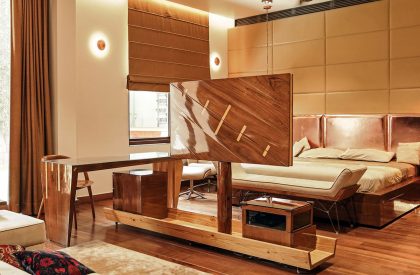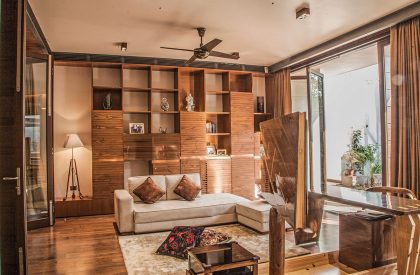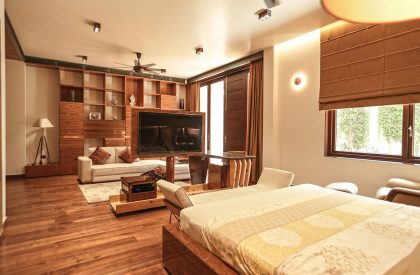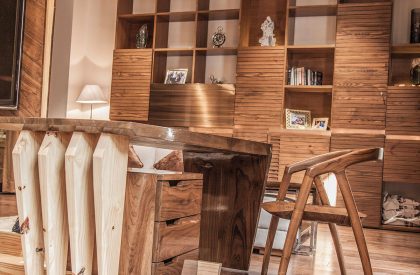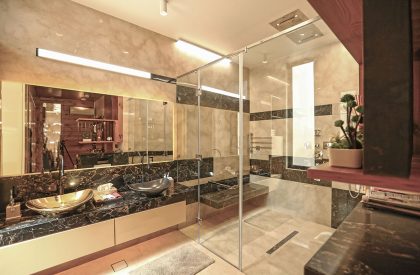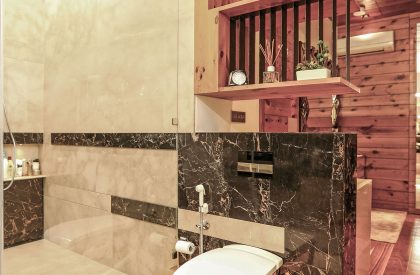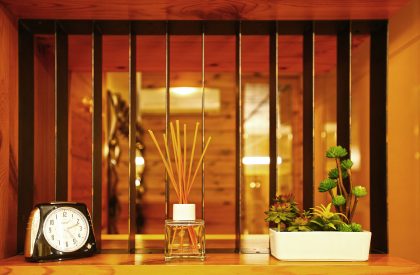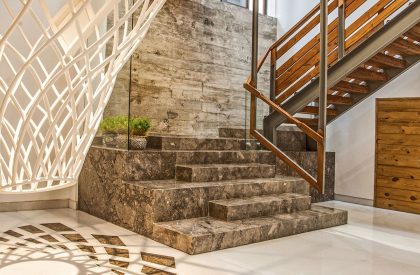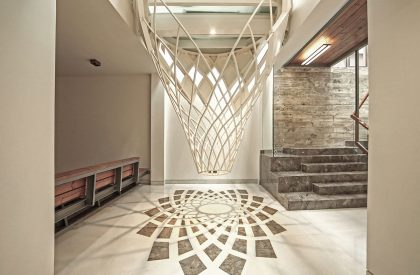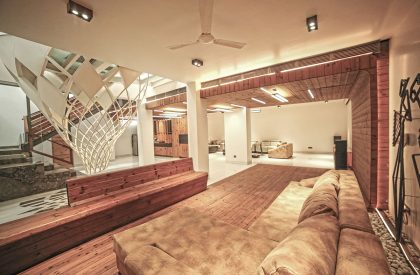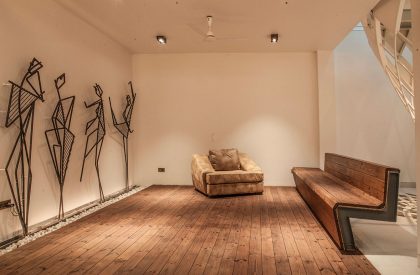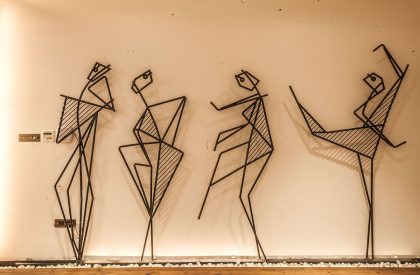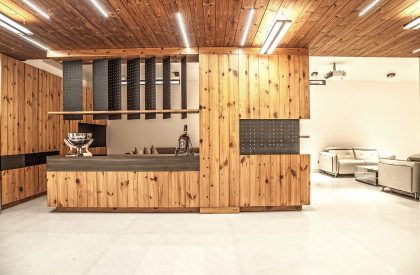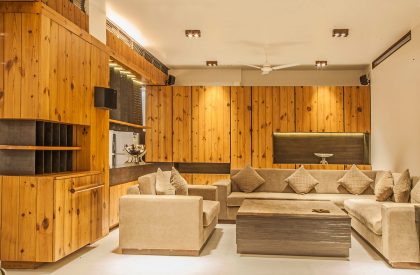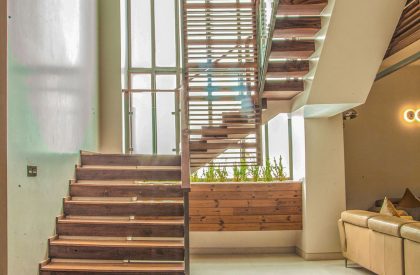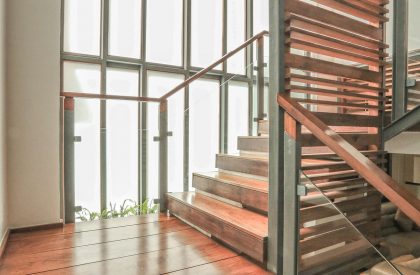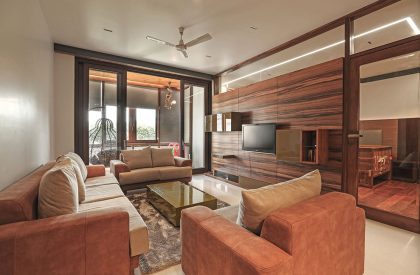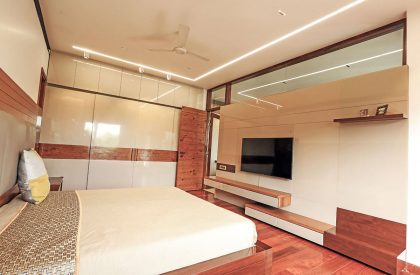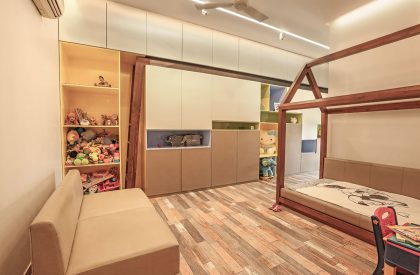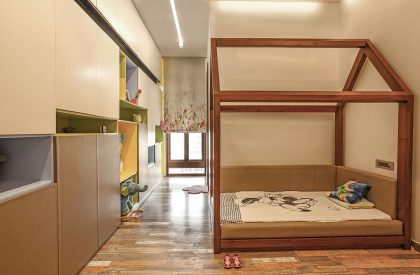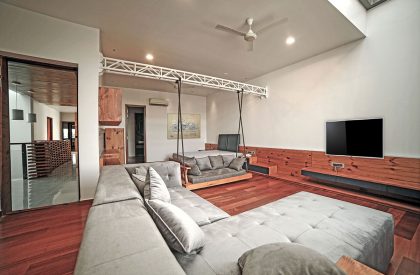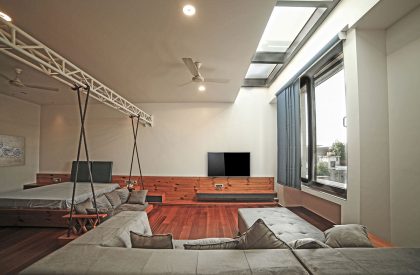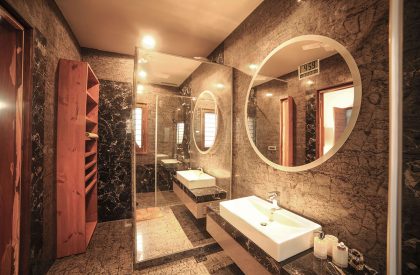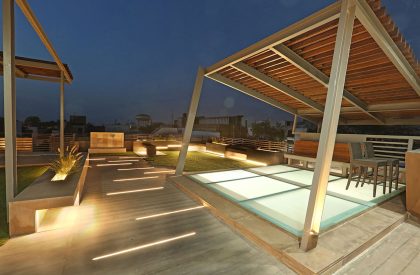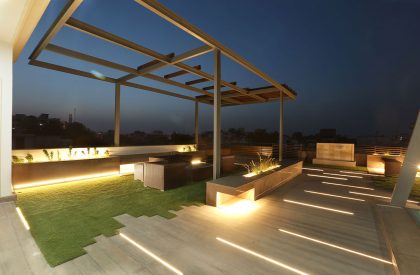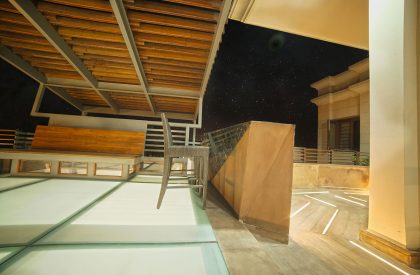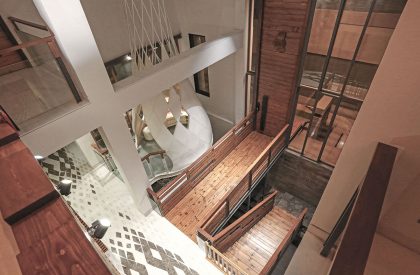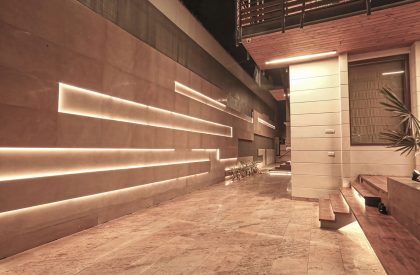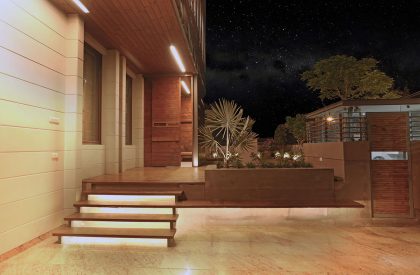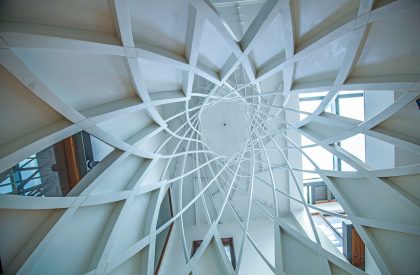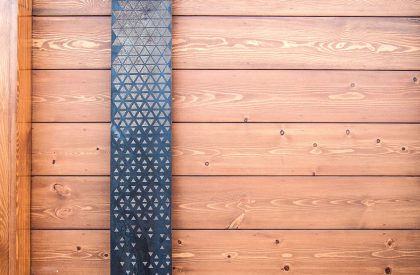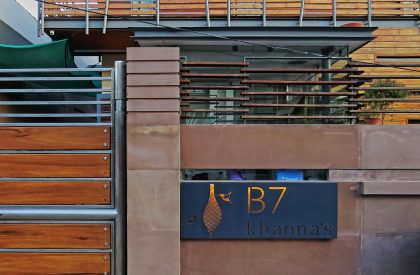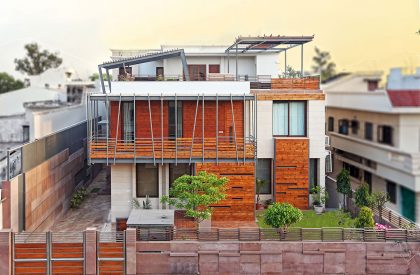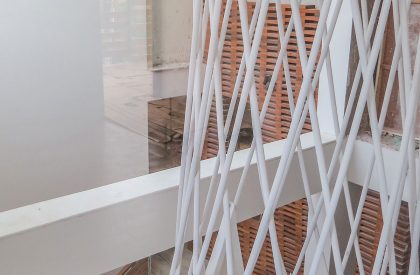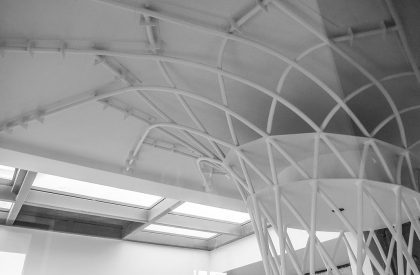Excerpt: The architectural project House B7, by Flyingseeds Design Studio, creates voids within the solid and inserts elements to make transitional spaces. Given that there isn’t much of a view from the house, the architects chose to develop an inward-looking house by bringing the simple outer landscape inside, both physically and visually, and by creating unique vistas inside the building. Without much sign of ostentation, the decor is modern and pleasant.
Project Description
[Text as submitted by architect] The house was presented like a blank canvas, which led the designers to follow their first idea that popped up on their very first site visit, thereby becoming the brief itself. “The existing structure and the new inserts” expand the dimensions of the spaces exponentially by bringing in new volumes, plenty of natural light, and connectivity.
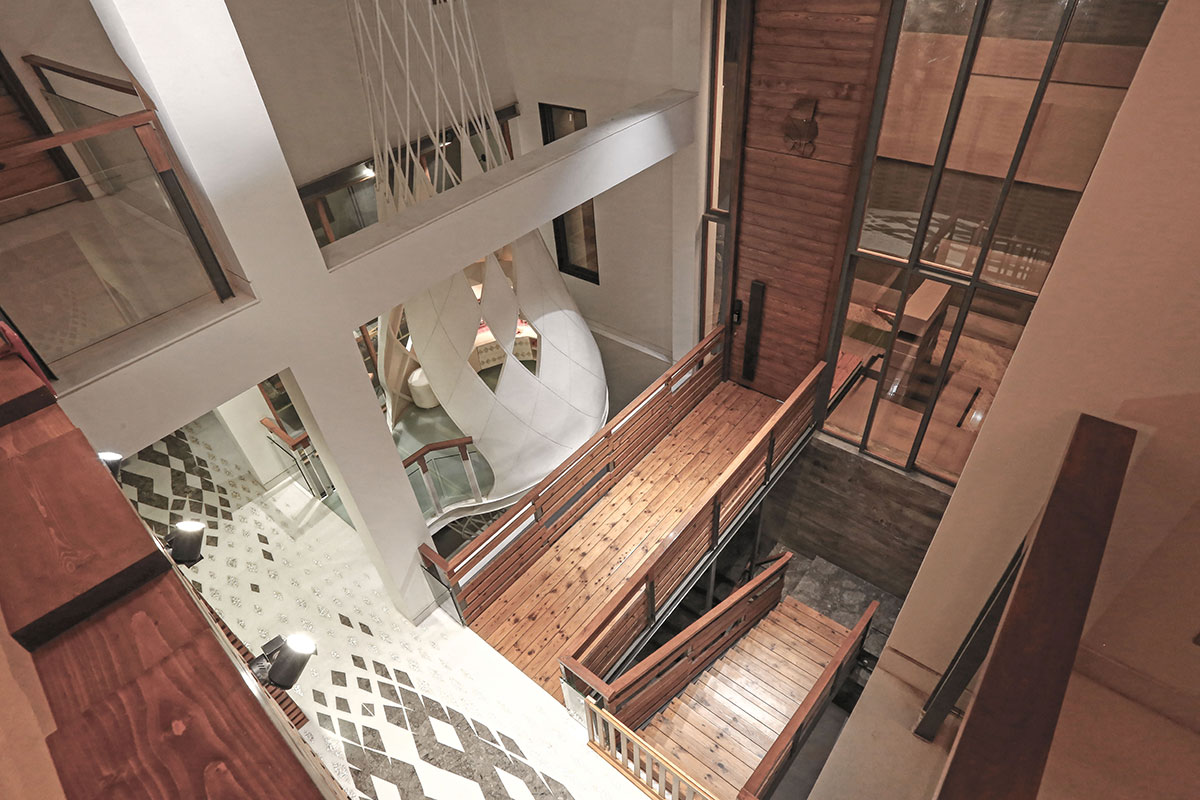
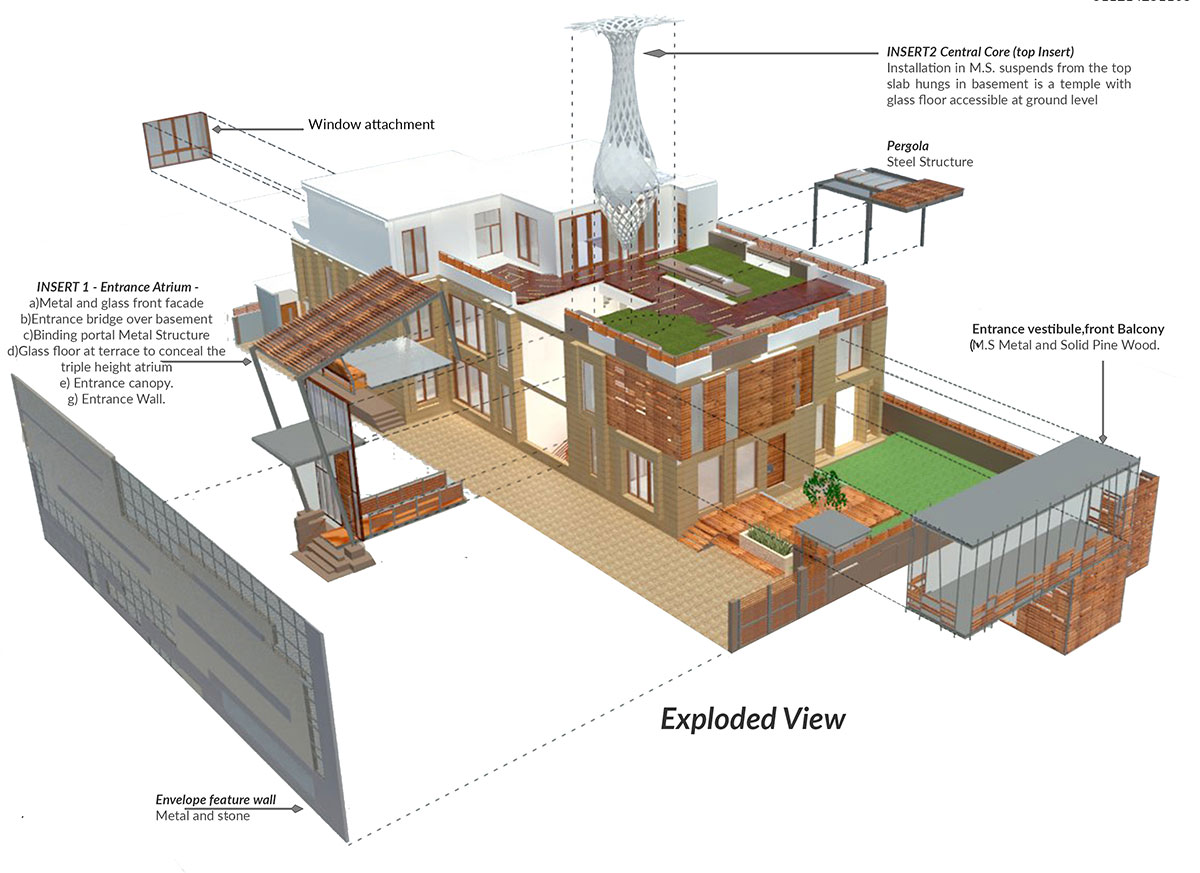
The designers started by shuffling the spaces, defining the axis, generating vertical connections, and most importantly, identifying the spaces for inserts and their character. The scope was kept very defined, specifically creating voids within the solid and injecting these inserts, which act as transitional elements. These sit quietly in the structure, transforming the typology of the space sections. The concerns revolved around climatic factors, optimised orientation of spaces, strategic connections, introducing ample daylight, and creating free-flowing, large informal spaces.
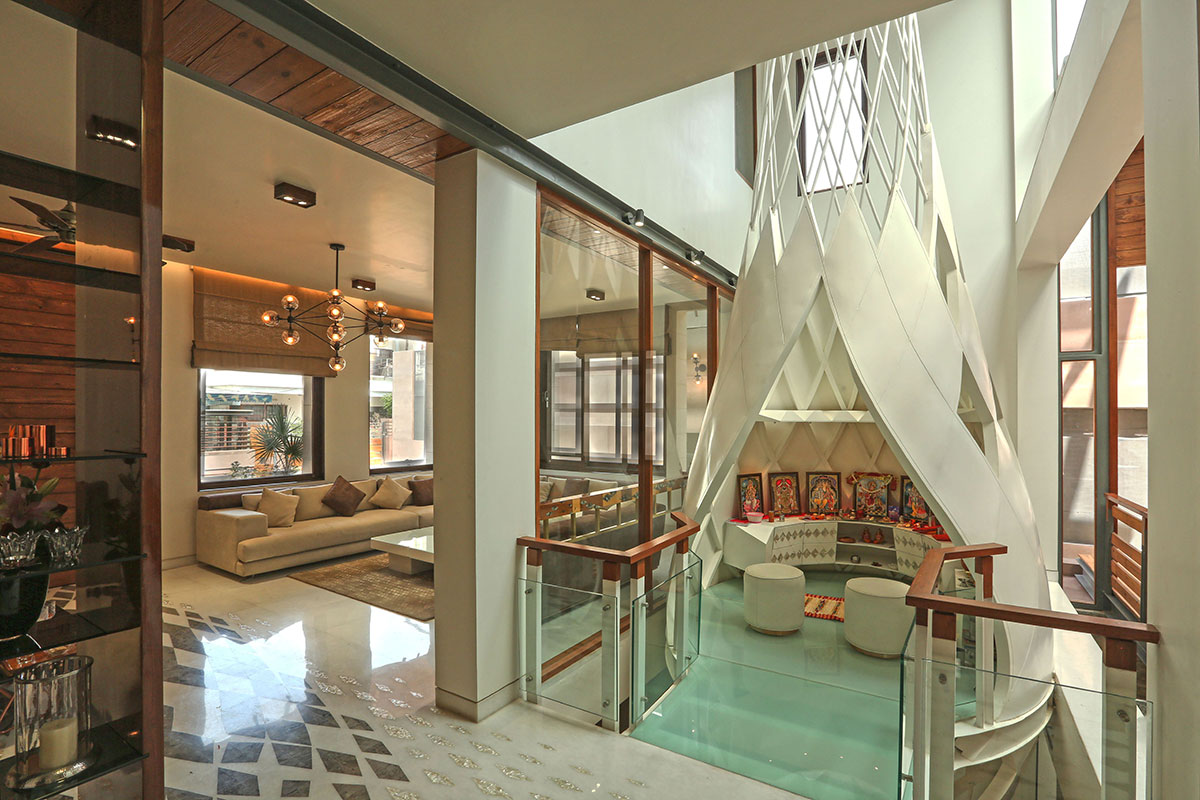
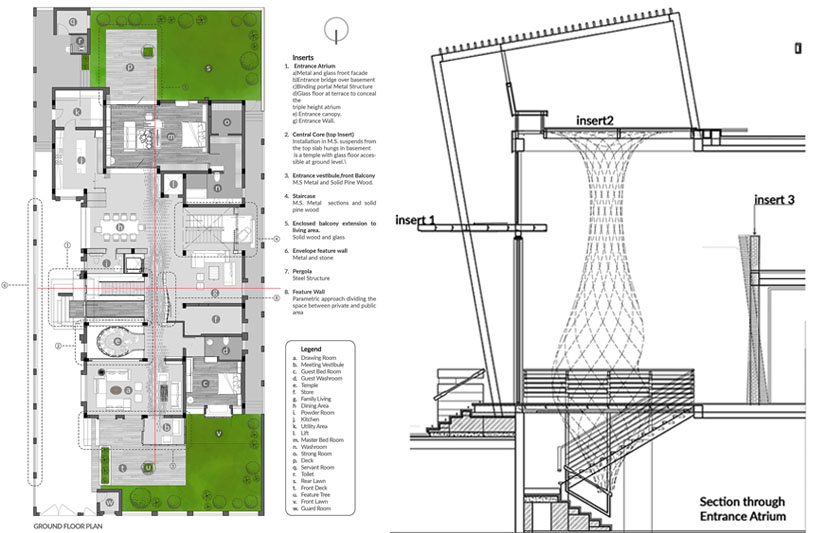
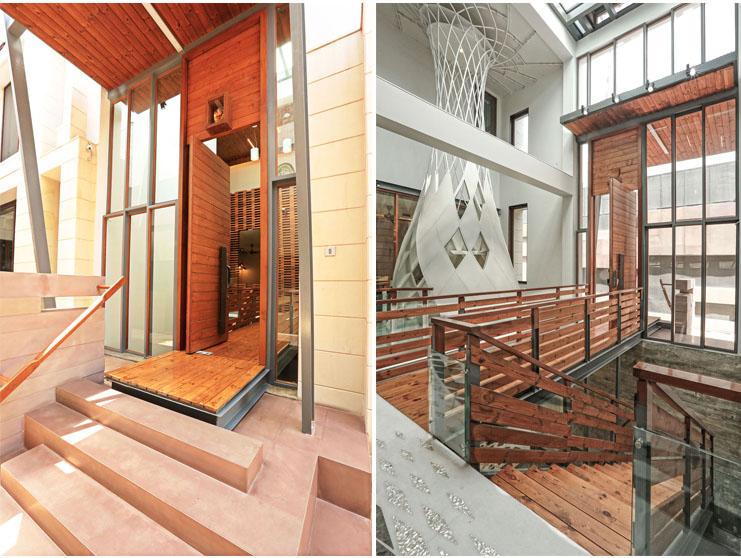
‘The Central Core’ became the central focii of the entire house as the focal element sits within the existing built mass. Suspended from the roof, metaphorically like a weaver’s bird’s nest, this house accommodates the family’s temple here. It brings in a majestic scale, which is witnessed the moment one enters the house through the bridge. While further penetrating into the basement, the entertainment area binds the levels and makes way for the abundance of natural light. The public areas converge into this triple-height core, which is dramatised by the craft of the nest.
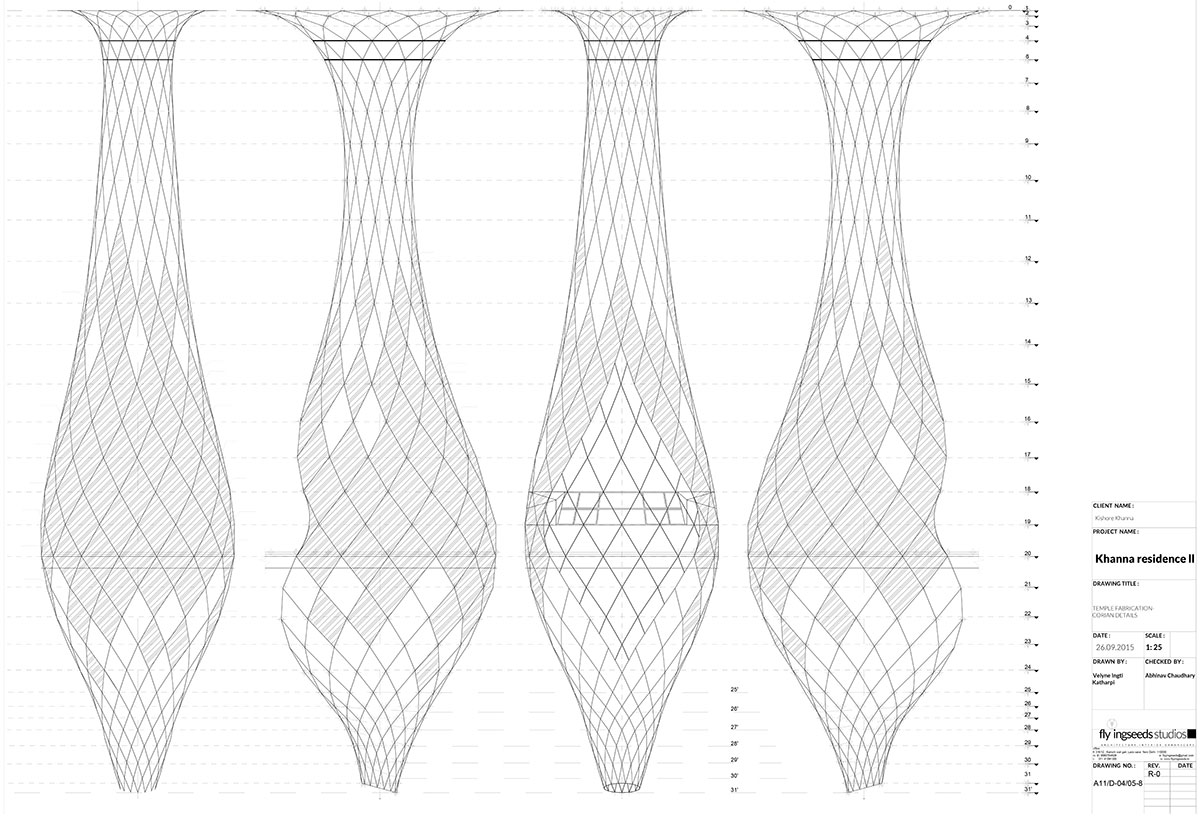
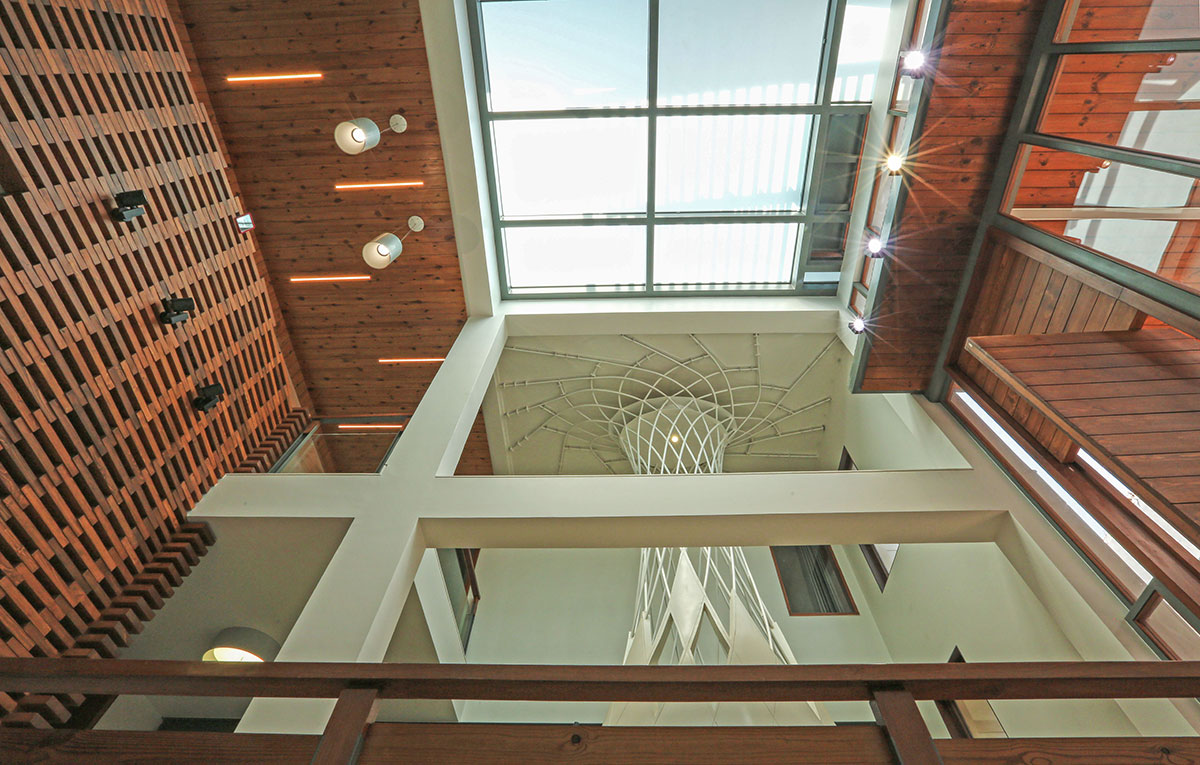
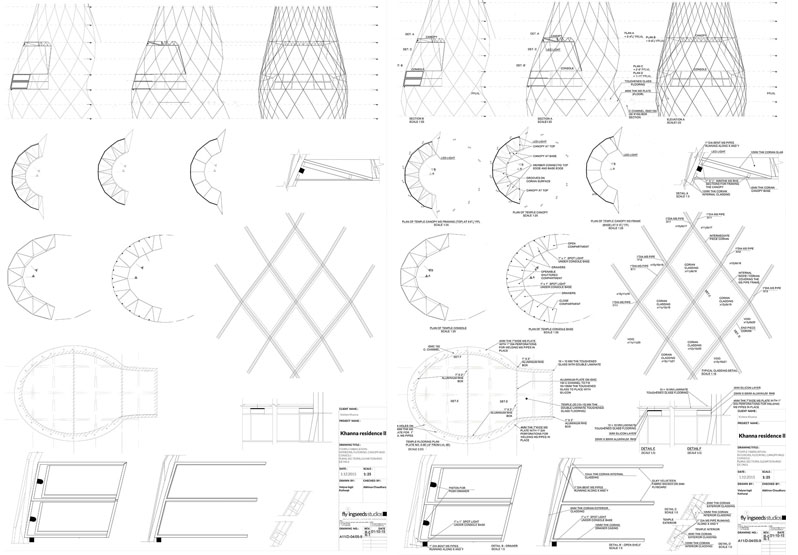
The construction of this magnificent installation was quite challenging for its size and parametric design. It was decided to be fabricated at site; a team of young, enthusiastic steel fabricators was formed who accepted the challenge enthusiastically to weave the nest using hollow MS pipes. The nest knits the people and spaces together.
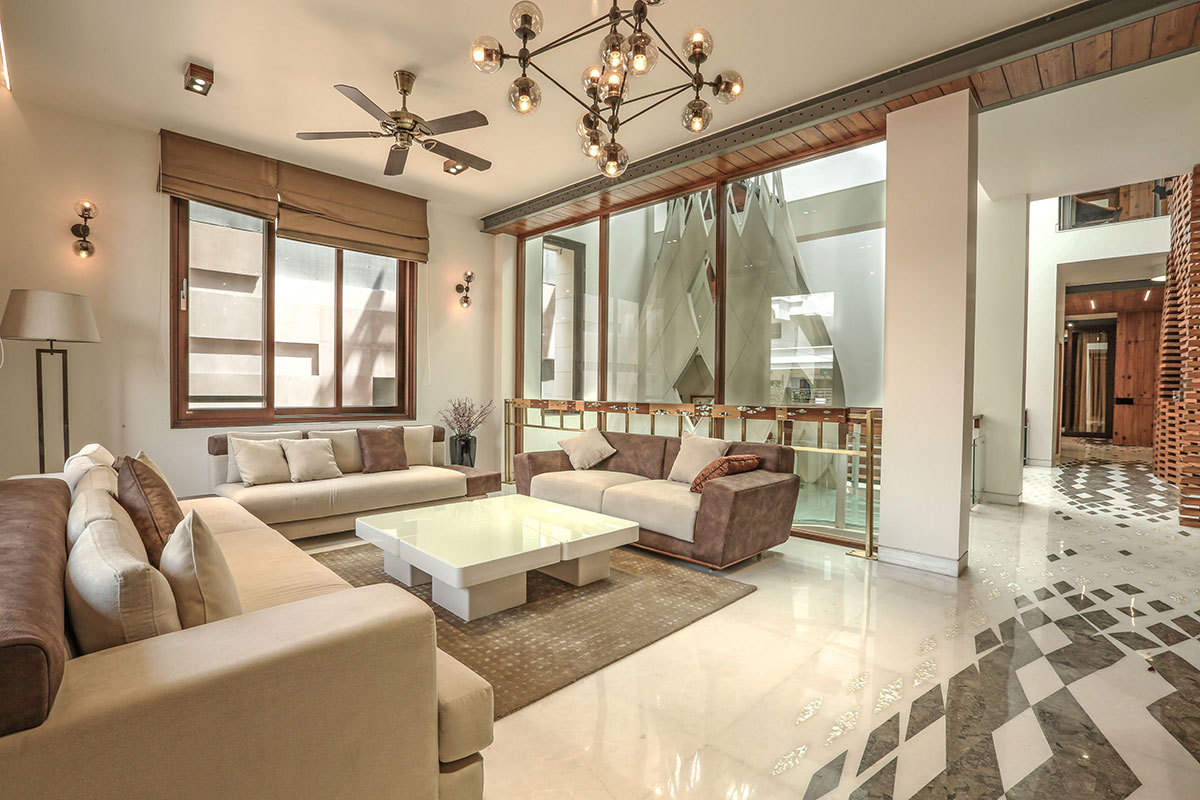
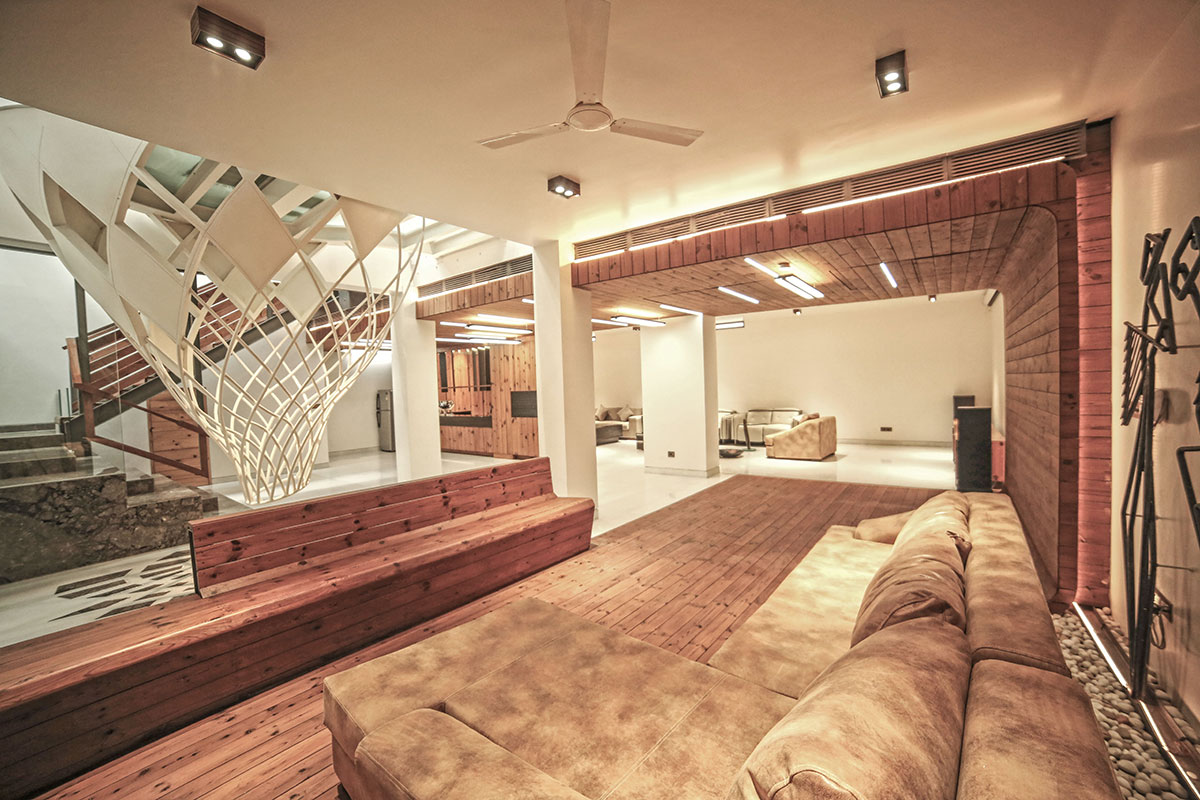
The elaborate central bar made up of solid pine and rustic steel plates will welcome the user as they step down and eventually lead to the lounge and home theatre, defined next to the dance floor and party area. The bottom of the nest peeking into this space accentuates the volume of the void.
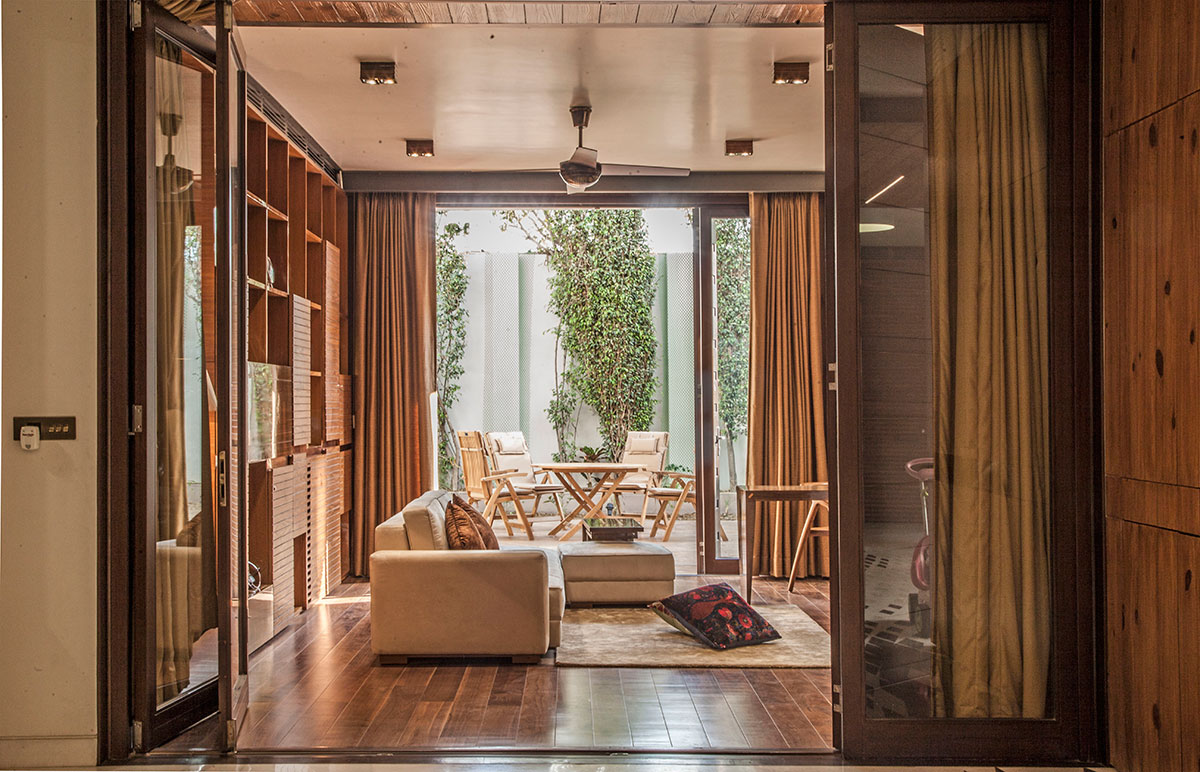
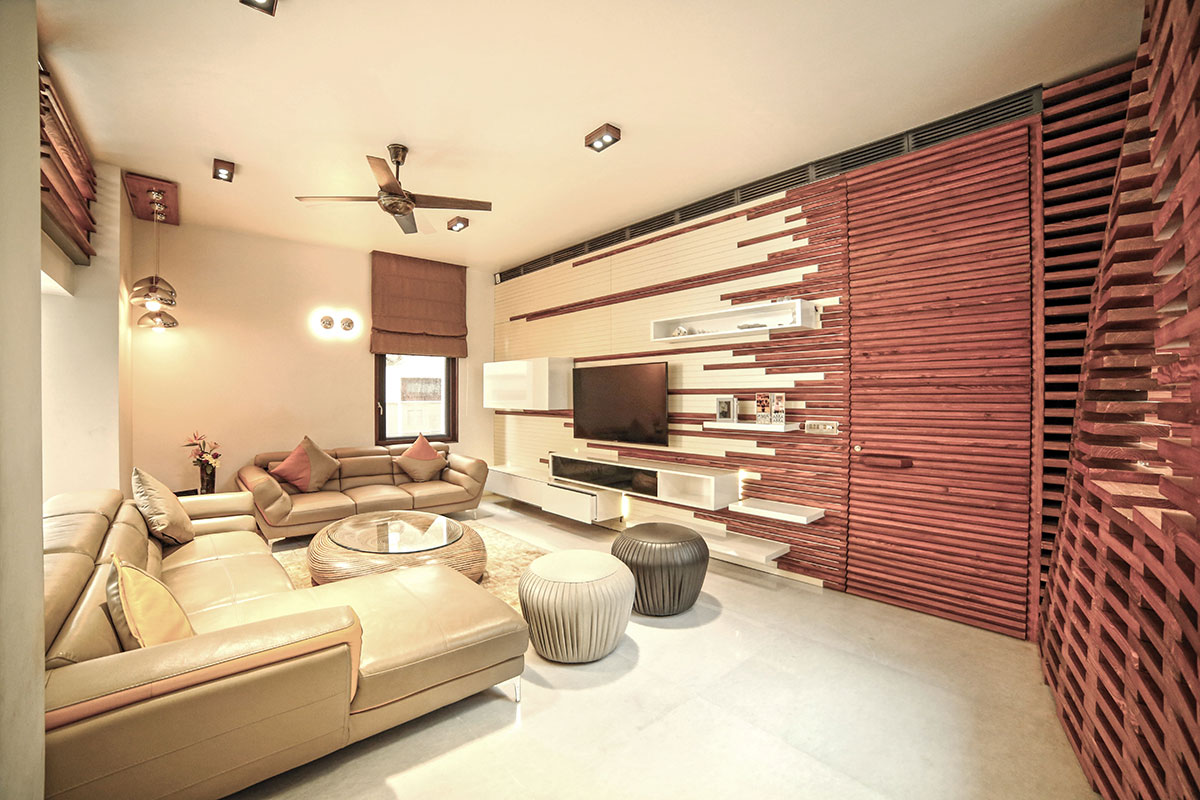
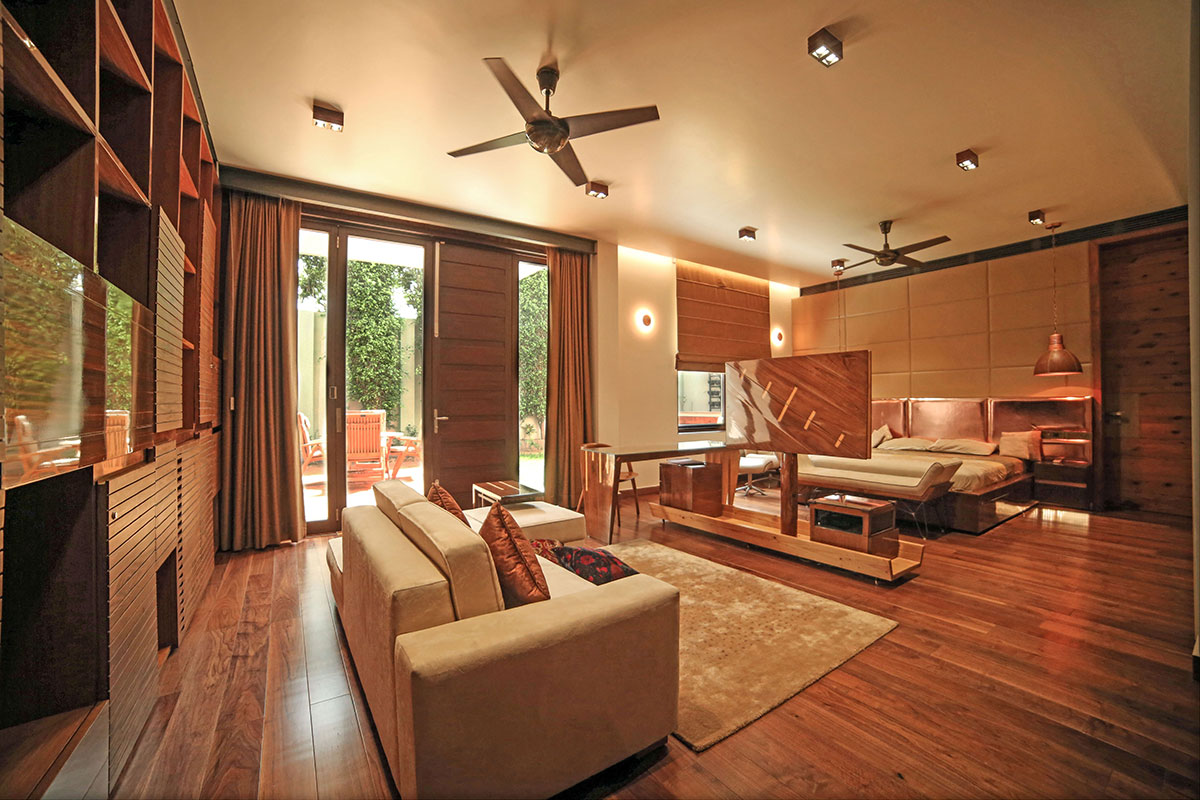
The master bedroom on the ground floor for the head of the family is designed as a flexible space equipped with sliding folding doors on either side, which open up to become a part of the semipublic area from inside and to outdoor deck seating on the outside. The central rotatable TV console is clubbed with a study table and lies on the central axis of the floor plan, from where the head of the family can view the entire floor inside out.
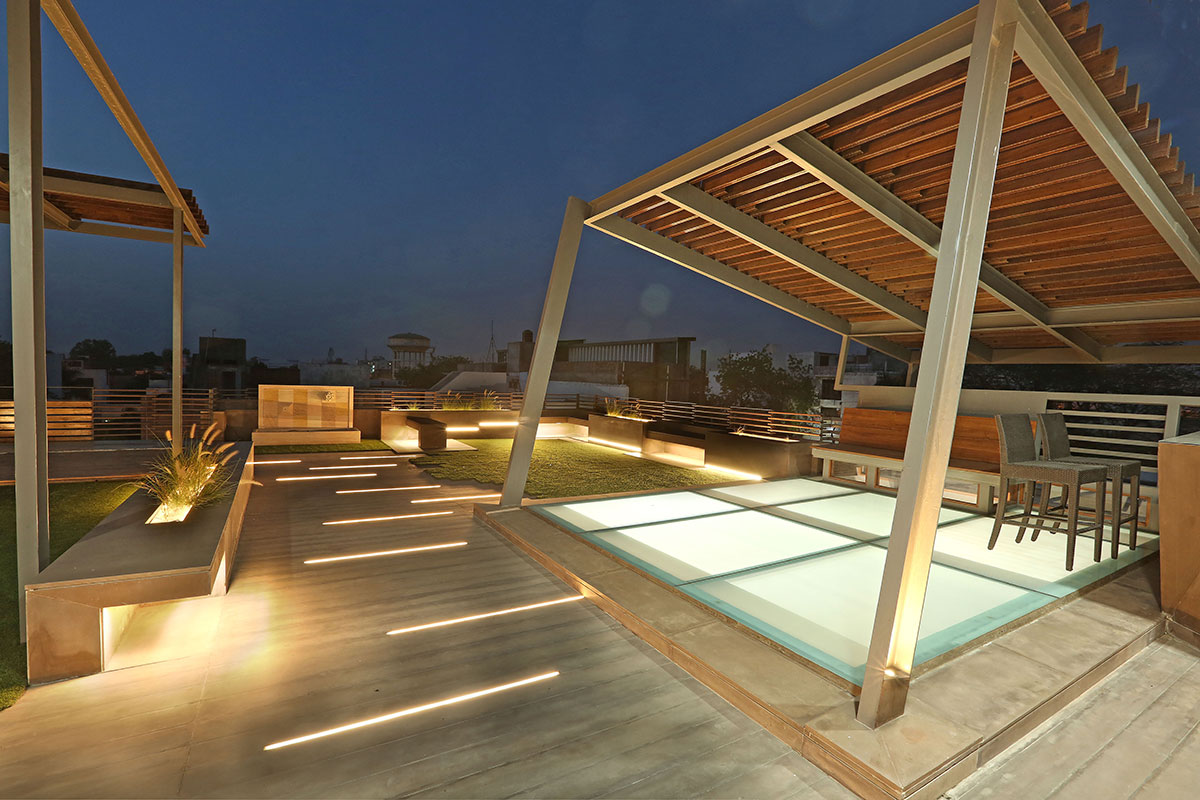
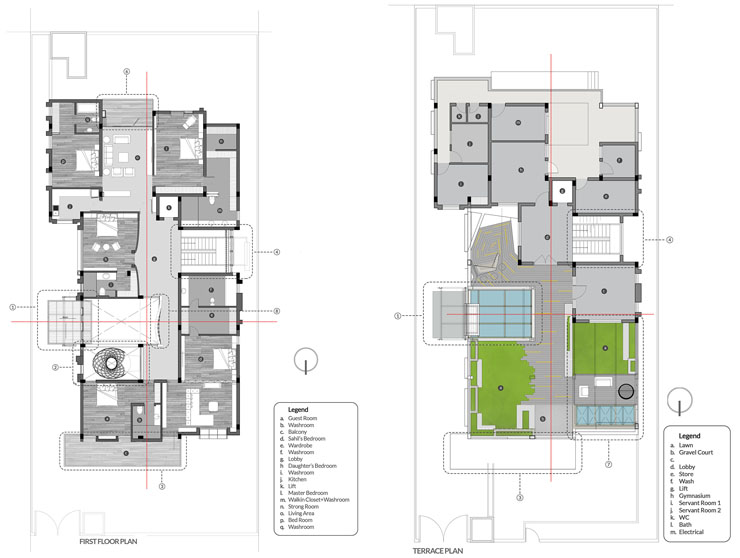
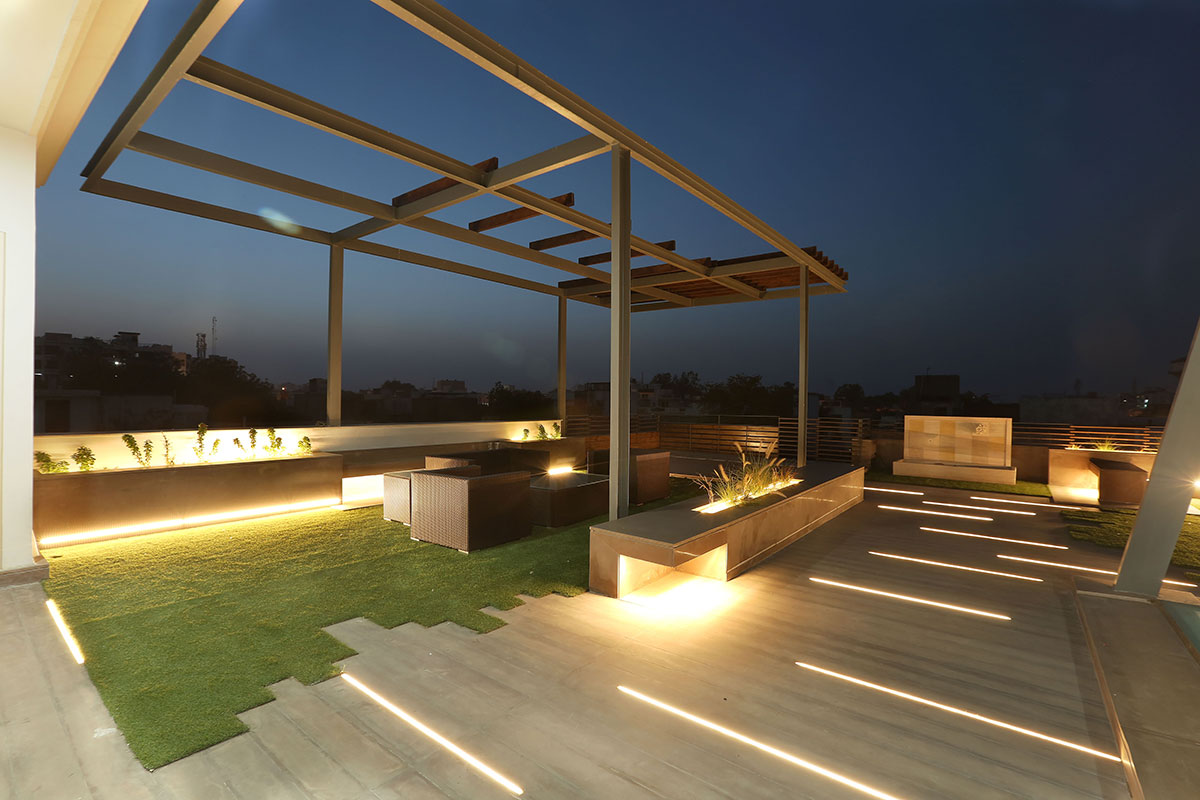
The terrace is a humble social outdoor place. Since the house does not boast a big garden, the terrace suffices for the need for one. Pockets of space are arrested to create nooks for smaller gatherings covered by semi-open pergolas. While the flooring and landscape maintain the fluidity of the layout with a balance of hard and softscapes. A sculptured outdoor bar sits in one corner, making the terrace even more lively. The skylights, which bring an abundance of natural light into the house, transform into gazebos with lit floors on the terrace.
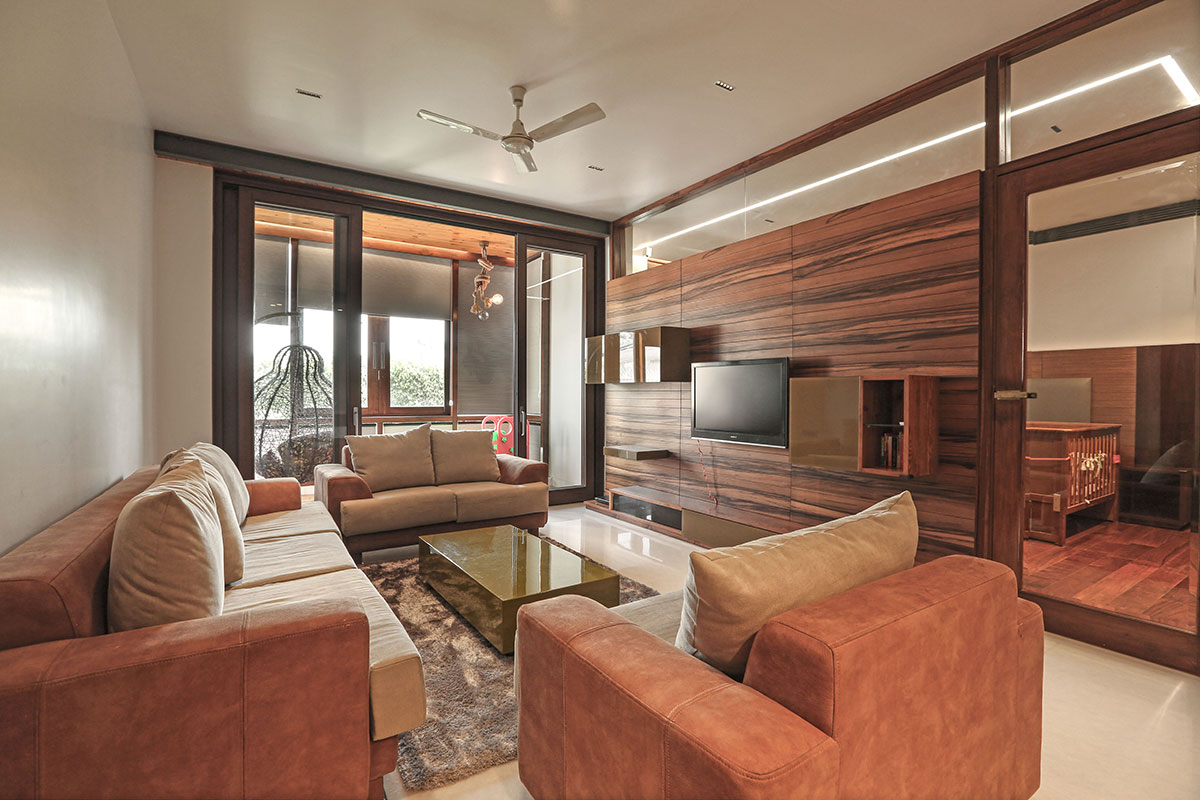
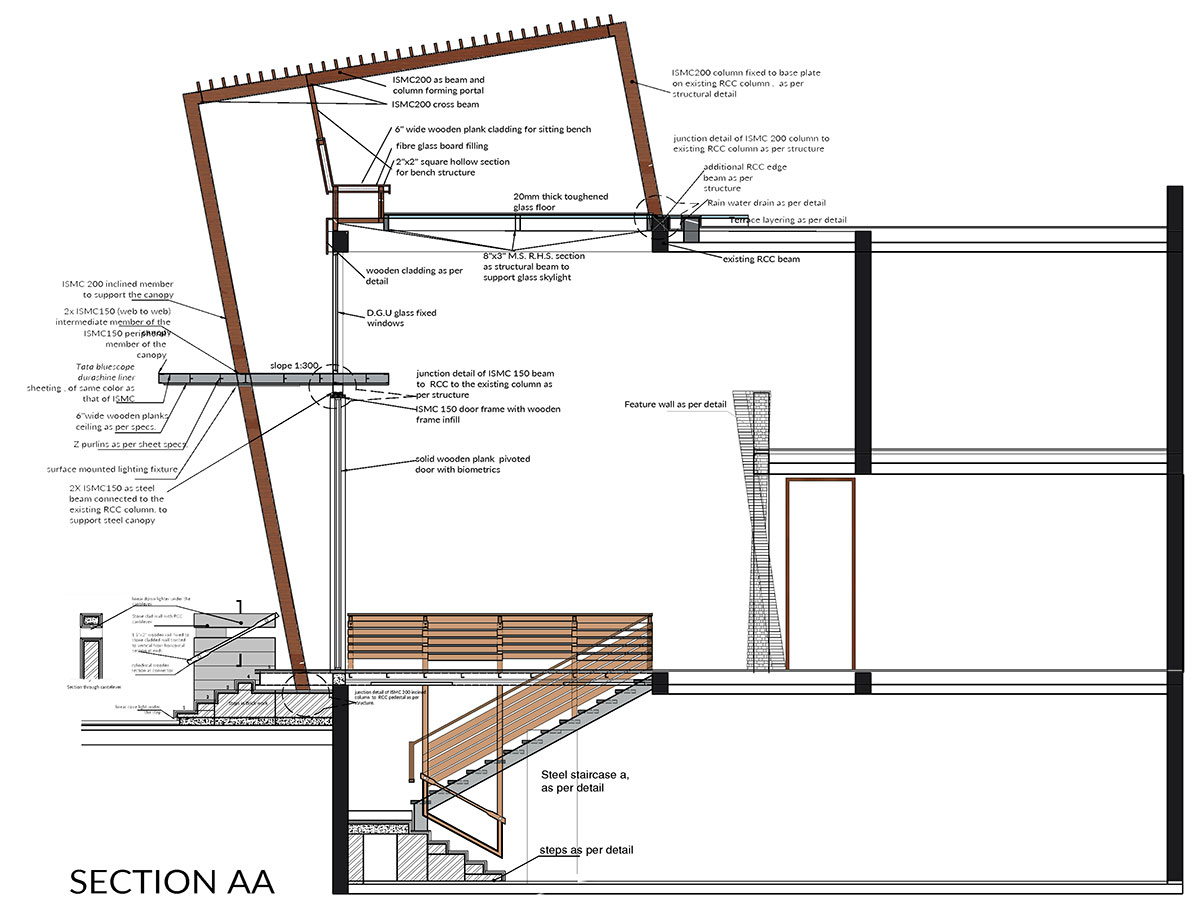
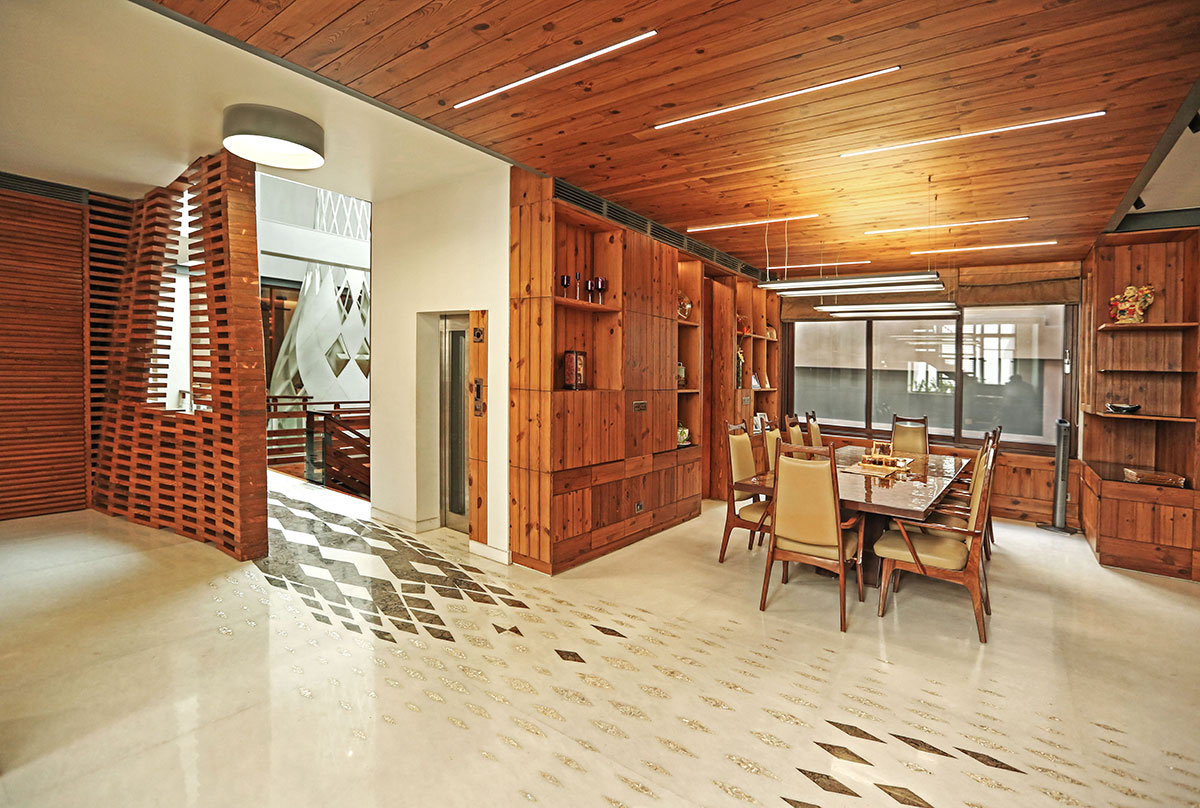
As the home does not have much of a view, the designers decided to build an inward-looking house by pulling the basic outdoor landscape inside, both physically and visually, and creating interesting vistas inside the home. The façade is an outcome of a functional response; the same indoor exposed MS skeleton and soft solid wood flare out and cling to the built masonry mass.
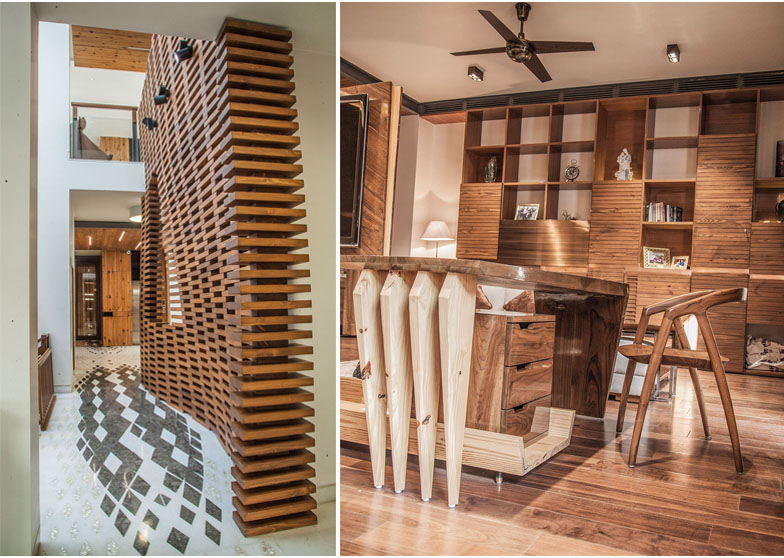
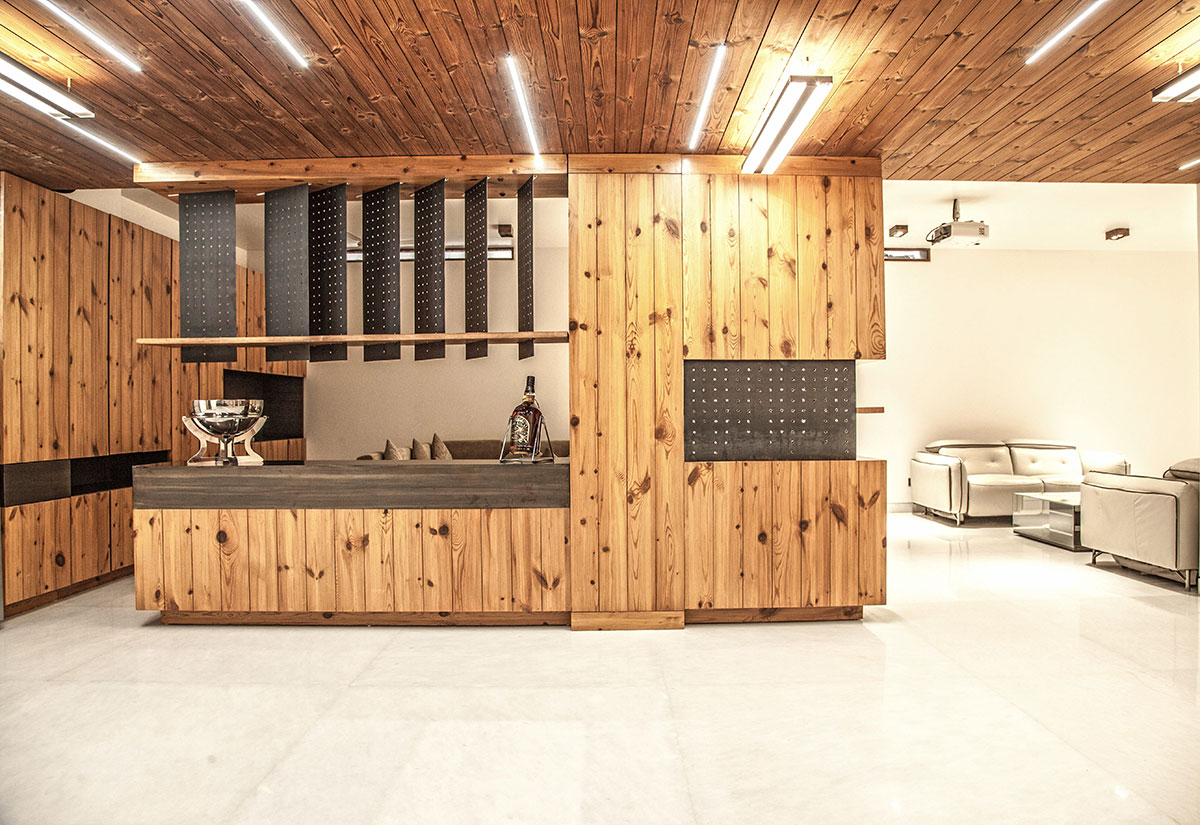
The interior is contemporary and warm, without much trace of ostentation. The purity of the idea is conveyed by using only pinewood for cladding, paneling, a false ceiling, furniture, etc. The use of a muted colour palette creates a subtle multiplicity with this material. Every room speaks of a distinct characteristic of the user’s lifestyle while blending with the holistic idea.
